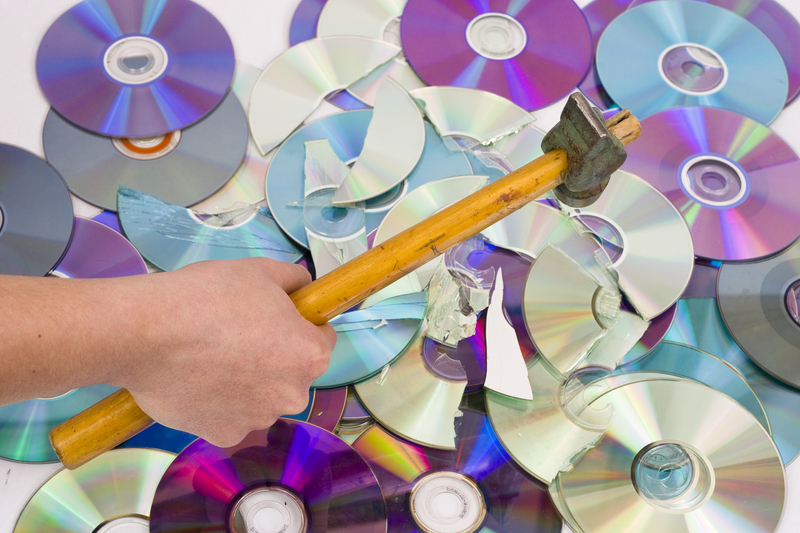Cut Your Bulky Waste Disposal Costs with These Strategies
Are you struggling with mountains of old furniture, broken appliances, or other oversized items? If so, bulky waste disposal can quickly become a costly and stressful task for households and businesses alike. But the good news is you can significantly reduce your bulky waste disposal costs -- and even help the environment -- with some smart, strategic planning.
In this comprehensive guide, we'll walk you through the best strategies to save money, time, and hassle when it comes to getting rid of large household junk and business waste. From clever recycling to finding free collection services, you'll discover actionable tips that make cutting your bulky rubbish removal expenses easier than ever.
What is Bulky Waste?
Bulky waste refers to any waste items that are too large to fit in regular bins or standard rubbish collections. This typically includes:
- Old sofas, armchairs, and mattresses
- Desks, filing cabinets, and large office equipment
- Broken fridges, washing machines, and domestic appliances
- Garden furniture, bathtubs, and carpets
- Renovation debris (wood, metal, fixtures)

Why is Bulky Waste Disposal So Expensive?
Before exploring cost-saving strategies, let's quickly review why bulky waste removal services can be expensive:
- Labour Intensive: Large items require more manpower and specialized equipment to collect, load, and transport.
- Landfill Charges: Many disposal methods incur local authority fees and landfill taxes, which are often calculated by weight and volume.
- Transport Costs: Large, heavy items need bigger vehicles and more fuel to move.
- Recycling Challenges: Disposing of complex items (e.g., mattresses, fridges) often involves time-consuming recycling processes or special permits.
- Administrative Fees: Some councils or private companies add service fees on top of disposal and transport costs.
Top Strategies to Cut Your Bulky Waste Disposal Costs
So, how can you enjoy significant savings? These tried-and-tested strategies will help you reduce bulky waste disposal costs -- read on to maximize your savings.
1. Reuse or Repurpose Bulky Items
Before you arrange disposal, ask yourself: Can this item be reused or repurposed? Many bulky items can find a second life with a bit of creativity:
- Turn old wooden furniture into garden planters or DIY projects.
- Repurpose shelving and cabinets as garage or workshop storage.
- Use sofa cushions as pet beds or floor seating.
2. Sell or Donate Usable Items
If your bulky waste is still in usable condition, consider selling or donating it:
- List items on online marketplaces (eBay, Facebook Marketplace, Craigslist).
- Contact local charities, shelters, or reuse organizations (e.g., British Heart Foundation, Salvation Army).
- Hold a garage sale or community swap event.
3. Use Free Local Authority Collection Services
Many councils and municipalities offer free or subsidized bulky waste collections for residents, especially for specific items like white goods or mattresses. Check your local authority's website for:
- Bulky waste collection booking forms
- Accepted item lists and collection dates
- Limits on number or type of items per collection
4. Organize a Neighbourhood Collection
Team up with neighbours or nearby businesses to pool your bulky waste and arrange a group collection. This allows you to:
- Share the costs of private removal services
- Negotiate bulk discount rates
- Reduce vehicle fuel usage with fewer trips
5. Break Down Items Before Disposal
Many disposal fees are based on volume or weight. By breaking large items into smaller parts (e.g., dismantling bed frames or cutting sofas down to size), you can:
- Reduce the space they take up in the truck or skip
- Potentially lower your waste weight category
- Increase the chance of items being accepted in normal bin rounds or at recycling centres
6. Take Advantage of Waste Recycling Centres
Most towns operate household waste recycling centres (HWRCs) that accept a wide range of large items for free or a small charge:
- White goods (fridges, washing machines)
- Furniture, wood, and scrap metal
- Renovation waste (sinks, baths, tiles)
7. Hire a Skip -- The Smart Way
For large renovation or clear-out projects, hiring a skip can be efficient, but costs can escalate fast. To save money on skip hire for bulky waste:
- Choose the correct size - overfilling leads to extra charges.
- Share with neighbours and split the cost.
- Only put accepted waste in the skip (restricted items will incur surcharges).
- Book in advance to access lower rates and avoid last-minute premiums.
8. Compare Private Collection Companies
If local council services aren't available or are too slow, a licensed private bulky waste collector may be your best bet. To get the cheapest bulky item removal rates:
- Get multiple quotes and compare local providers
- Look for companies offering fixed rates or volume-based pricing
- Check for reviews and eco-friendly disposal credentials
9. Schedule Disposal Off-Peak
Many removal services offer discounts for weekday, off-peak, or flexible slot bookings. Scheduling your bulky waste disposal when demand is lower could net you a better deal.
10. Avoid Hidden Costs and Fines
Unexpected costs can wipe out your savings. Always:
- Check for hidden surcharges (e.g., for fridges, mattresses, hazardous materials)
- Get a written quote before booking
- Never leave waste on pavements or public spaces, as fly-tipping carries heavy fines
Frequently Asked Questions About Bulky Waste Disposal
What is the cheapest way to dispose of bulky waste?
The most affordable approaches are selling, donating, or repurposing items yourself. If this isn't possible, utilizing free or subsidized local council collections, or transporting items to a waste recycling centre, are usually the cheapest options.
What items are classed as bulky waste?
Bulky waste typically includes items too large for regular bins, such as furniture (sofas, tables, beds), white goods (fridges, freezers), and household fixtures (carpets, baths). Some councils provide lists of accepted items.
Can I leave bulky items on the street for collection?
Generally, no. Most councils require you to book a collection slot and specify exactly where and when to place your items for pickup. Leaving items on the street without arrangement can result in fines for fly-tipping.
Who is responsible for disposing of bulky waste?
Homeowners, landlords, and businesses are legally responsible for ensuring their waste is disposed of responsibly. Always use licensed collectors or authorized council services.

Sustainable Bulky Waste Disposal Cuts Costs Long-Term
By adopting an eco-friendly bulky waste minimization strategy, you not only save money on disposal charges now, but also help build a greener, cleaner community. Here's how sustainable action benefits everyone:
- Less landfill waste protects the environment and reduces landfill taxes in your area.
- Recycling and repurposing saves resources and supports local businesses and charities.
- Community collection initiatives lower transport emissions and promote neighbourhood cooperation.
Conclusion: Be Smart to Cut Bulky Waste Disposal Costs
With a little planning, know-how, and community spirit, you can dramatically reduce your bulky waste disposal expenses while making a positive environmental contribution.
To recap, remember to:
- Repurpose, sell, or donate whenever possible
- Explore free or subsidized local council disposal schemes
- Break down items and use recycling centres for cheap disposal
- Share disposal efforts (and costs) with neighbours
- Avoid hidden charges by double-checking all provider terms
For more expert advice and up-to-date information on disposing of large household items, keep reading our blog or consult your local council's website.